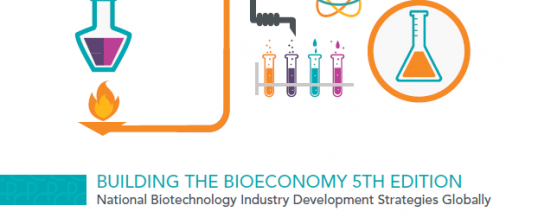
A Pugatch Consilium study released today commissioned by the Biotechnology Innovation Organization (BIO) highlights strategies, policies and best practices that have been successful in creating an environment in which biotechnology innovation can flourish around the world.
The fifth edition of the Building the Bioeconomy report shows the correlation between economies with pro-innovation policy frameworks and those achieving strong biotechnology outputs. By examining 28 different indicators ranging from public policy inputs to biotechnology outputs, the report provides a full and detailed analysis of the biotechnology environment for 33 countries from all major regions of the world.
This data-driven report developed in partnership by Pugatch Consilium and BIO, compares economies on over 20 policy inputs and biotech outputs showing how regulations effect success or failure in driving industry growth. Economies that have stronger environments with all enabling policy factors in place yield higher biotechnology outputs. Adopting a strong policy framework is key to reaping the economic and social benefit of this important industry.
“Designing policies to foster biotech innovation is not an easy task,” said Prof. Meir Pugatch, IPKM Chair, University of Maastricht and Managing Director, Pugatch Consilium. “To build a thriving biotechnology sector, whether it be agriculture, health or industrial applications, countries need strong intellectual property protections, a pro-innovation regulatory environment and robust technology transfer procedures. Funding research without establishing these elements is simply not enough. Countries should also think twice about so called mandatory localization policies and the over-riding of property rights including the issuing of compulsory licenses outside public health crises. Country experience suggests quite strongly that these policies are not effective in achieving the long-term goal of building a bioeconomy.”
The full report with Executive Summary is available for download at: Research & Analysis Reports Page
ShareNOV
2018

About the Author:
David’s focus is policy and economic analysis related to innovation, health care, pharmaceuticals, tax and intellectual property. He has wide experience in quantitative research methods including index-building and data sampling and is the author of a number of both academic and commissioned publications. David’s knowledge spans from North America and Europe to the BRIC economies, and he speaks fluent Swedish. Prior to his work with Pugatch Consilium, David was with Deloitte LLP where he worked on a broad range of UK and international tax compliance and advisory projects. David holds a Master of Studies and DPhil (PhD) from Oxford University.